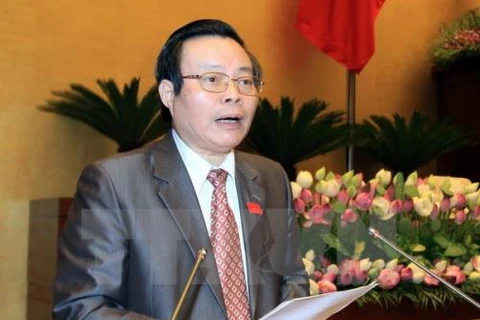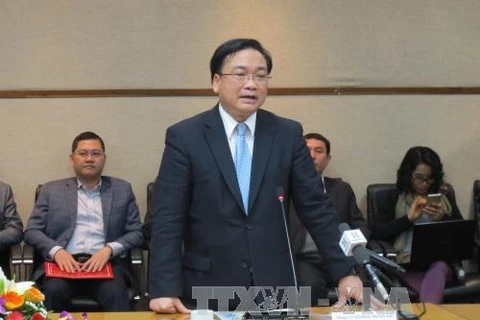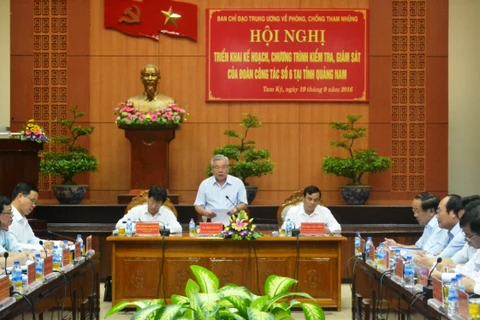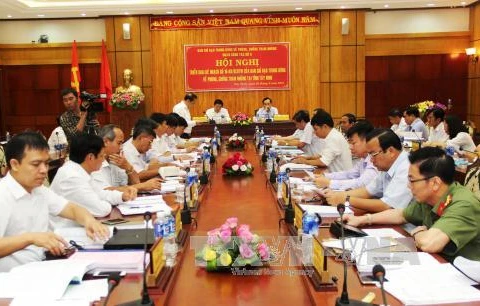 Chairman of the NA's Committee for Legal Affairs Nguyen Khac Dinh speaks at a meeting of the NA Standing Comittee (Photo: VNA)
Chairman of the NA's Committee for Legal Affairs Nguyen Khac Dinh speaks at a meeting of the NA Standing Comittee (Photo: VNA) Hanoi (VNA) – The revised Anti-Corruption Law should accord with relevant laws and the United Nations Convention against Corruption, participants said at the third session of the National Assembly (NA)’s Committee for Legal Affairs.
On the last day of the session on September 28, they noted the NA has approved many laws with anti-corruption regulations such as the laws on the State budget, investment, public investment and enterprises, the Penal Code, the Civil Code, the Criminal Procedure Code, and the Civil Procedure Code.
The committee’s Vice Chairman Nguyen Manh Cuong said several regulations in the draft revised anti-corruption law still overlap with, even contrary to, those in other laws. For example, Article 3 of the draft revised law defines 12 corruption acts, the Penal Code stipulates only seven.
Cuong asked the drafting board to continue overhauling the draft to ensure its conformity with the legal system.
The new point in the revised draft Anti-Corruption Law is it also covers corruption prevention and control in non-State sector organisations and businesses. Many legislators said the law’s scope expansion is necessary amidst the current socio-economic development and the requirements of management of the non-State sector.
Truong Trong Nghia, a member of the Legal Affairs Committee, said some countries and international organisations have recommended Vietnam include the private sector in its corruption fight as there has been collusion between the public and private sectors in corruption.
However, some lawmakers said in the immediate future, the priority should be given to corruption fight in the State sector which hasn’t been done well enough, and it is not necessary for the anti-corruption law to address the non-State sector at present.-VNA
























